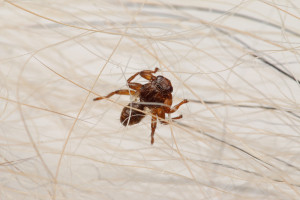"Dead Bells" is the most dangerous plant. It's better not to even smell it

Tall, slender, with bell-shaped flowers of intense color - purple foxglove (Digitalis purpurea) is a plant that often ends up in gardens for purely aesthetic reasons. It occurs wild in the mountains, mainly in the Sudetes and Beskids, but it is also planted in cities, on allotments and squares .
Not everyone knows, however, that it is one of the most poisonous plants in Poland. A few milligrams of its leaves or flowers are enough to poison the body. For children – just touch the plant and then reach for a sandwich.
All parts of the plant contain cardiac glycosides – powerful chemicals that directly affect the heart muscle.
Even a small amount of ingested plant material can:
- cause heart rhythm disturbances,
- lead to fainting, nausea and headache,
- cause allergic reactions just by touching them,
- and in extreme cases – stop the heart.
It is important to emphasize that symptoms do not have to appear immediately . Sometimes they appear only after 24–48 hours of contact with the plant, which significantly complicates diagnosis.
According to the Chief Sanitary Inspectorate, consuming just 2–3 grams of fresh plant parts is a lethal dose for an adult. In the case of children or the elderly, much less is enough. To quote the state sanitary inspector from Wałbrzych, M.D. Małgorzata Bąk: - Even getting your hands dirty with digitalis juice and eating bread can have health consequences.
This means the risk is not limited to intentional ingestion. Incidental contact is enough .
For children, foxglove can be particularly dangerous. The purple flowers resemble fairy-tale bells – perfect for playing. Meanwhile, a moment of inattention is enough for a child to touch the leaves and then wipe their mouth with their hand. Similarly, pets such as dogs and cats can accidentally be poisoned by eating the leaves or flowers.
Before you decide on this plant, remember:
- Do not plant it in places accessible to children and animals.
- Always wear gloves when handling any plant.
- Wash your hands thoroughly after handling foxglove.
- Don't smell the flowers or bring them into your home as decorations.
According to the list of poisonous plants kept by the Polish sanitary services, foxglove is on the list of plants of particular risk. Although its cultivation is not formally prohibited, the forest services and GIS appeal for prudence and caution - especially during the flowering season.
Copyrighted material - reprint rules are specified in the regulations .
rynekzdrowia









